I can duplicate OPs problem
public class TestDuplicate {
private static void foo(int n) {
System.out.println("foo a");
}
public static void foo(int n) {
System.out.println("foo b");
}
public static void main(String[] args) {
foo(1);
}
}
out: foo a
More info
{java.runtime.name=Java(TM) SE Runtime Environment, sun.boot.library.path=C:\Program Files\Java\jre7\bin, java.vm.version=23.7-b01, user.country.format=NO, java.vm.vendor=Oracle Corporation, java.vendor.url=http://java.oracle.com/, path.separator=;, java.vm.name=Java HotSpot(TM) 64-Bit Server VM, file.encoding.pkg=sun.io, user.country=US, user.script=, sun.java.launcher=SUN_STANDARD, sun.os.patch.level=Service Pack 1, java.vm.specification.name=Java Virtual Machine Specification, user.dir=C:\Workspace\StackOverflow, java.runtime.version=1.7.0_17-b02, java.awt.graphicsenv=sun.awt.Win32GraphicsEnvironment, java.endorsed.dirs=C:\Program Files\Java\jre7\lib\endorsed, os.arch=amd64, java.io.tmpdir=C:\Users\Maki\AppData\Local\Temp\, line.separator=
, java.vm.specification.vendor=Oracle Corporation, user.variant=, os.name=Windows 7, sun.jnu.encoding=Cp1252, java.library.path=C:\Program Files\Java\jre7\bin;C:\Windows\Sun\Java\bin;C:\Windows\system32;C:\Windows;C:\Program Files (x86)\Intel\iCLS Client\;C:\Program Files\Intel\iCLS Client\;C:\Program Files (x86)\NVIDIA Corporation\PhysX\Common;C:\Program Files (x86)\AMD APP\bin\x86_64;C:\Program Files (x86)\AMD APP\bin\x86;C:\Windows\system32;C:\Windows;C:\Windows\System32\Wbem;C:\Windows\System32\WindowsPowerShell\v1.0\;C:\Program Files (x86)\ATI Technologies\ATI.ACE\Core-Static;C:\Program Files\MiKTeX 2.9\miktex\bin\x64\;C:\Program Files\Java\jdk1.7.0_17\bin;C:\Program Files\Intel\Intel(R) Management Engine Components\DAL;C:\Program Files\Intel\Intel(R) Management Engine Components\IPT;C:\Program Files (x86)\Intel\Intel(R) Management Engine Components\DAL;C:\Program Files (x86)\Intel\Intel(R) Management Engine Components\IPT;., java.specification.name=Java Platform API Specification, java.class.version=51.0, sun.management.compiler=HotSpot 64-Bit Tiered Compilers, os.version=6.1, user.home=C:\Users\Maki, user.timezone=, java.awt.printerjob=sun.awt.windows.WPrinterJob, file.encoding=UTF-8, java.specification.version=1.7, java.class.path=C:\Workspace\StackOverflow\bin, user.name=Maki, java.vm.specification.version=1.7, sun.java.command=TestDuplicate, java.home=C:\Program Files\Java\jre7, sun.arch.data.model=64, user.language=en, java.specification.vendor=Oracle Corporation, user.language.format=no, awt.toolkit=sun.awt.windows.WToolkit, java.vm.info=mixed mode, java.version=1.7.0_17, java.ext.dirs=C:\Program Files\Java\jre7\lib\ext;C:\Windows\Sun\Java\lib\ext, sun.boot.class.path=C:\Program Files\Java\jre7\lib\resources.jar;C:\Program Files\Java\jre7\lib\rt.jar;C:\Program Files\Java\jre7\lib\sunrsasign.jar;C:\Program Files\Java\jre7\lib\jsse.jar;C:\Program Files\Java\jre7\lib\jce.jar;C:\Program Files\Java\jre7\lib\charsets.jar;C:\Program Files\Java\jre7\lib\jfr.jar;C:\Program Files\Java\jre7\classes, java.vendor=Oracle Corporation, file.separator=\, java.vendor.url.bug=http://bugreport.sun.com/bugreport/, sun.io.unicode.encoding=UnicodeLittle, sun.cpu.endian=little, sun.desktop=windows, sun.cpu.isalist=amd64}
I find it odd though, the language specs says nothing about duplicate methods with different access modifiers.
My IDE (eclipse) complains with red underline on the methods warning me about duplicate methods but the code compiles and runs just fine.

